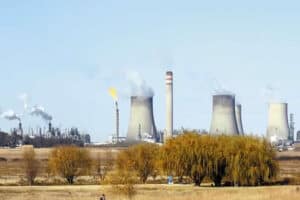It has been violent leading up to the municipal elections in Mpumalanga with murder, corruption and bomb threats.

On Wednesday, the slated member of the mayoral committee Mandla Msibi appeared in a Mbombela court on charges of murder and attempted murder while a crowd gathered outside to show their support during the official bail application.
Msibi’s bail application was interrupted when the court had to be evacuated.
Colonel Donald Mdhluli, spokesperson for Mpumalanga police, said the bail application of Msibi and two other applicants was interrupted with a bomb threat.
ALSO READ: Ex-MEC Mandla Msibi’s bail hearing adjourned after bomb scare
“The magistrate decided to adjourn the proceedings and the police bomb squad was called to process and check the authenticity of the threat,” Mdhluli said.
Msibi will appear in court again today. Earlier this week, Msibi was stripped of his duties as agriculture, rural development, land and environmental affairs MEC by Mpumalanga premier Refilwe Mtsweni-Tsipane.
Dr Johan Burger, of the Institute for Security Studies (ISS), said South Africa comes from a violent past in which liberation movements sought to get rid of the ruling party.
“It was a period of violent clashes,” Burger said.
He said agreements among the parties in the early 1990s led to a new constitution and the ANC taking over government.
“However, between 1991 and 1999 there was unprecedented political violence, especially in KwaZulu-Natal, where the ANC and other parties killed each other by the thousands,” Burger said.
Burger added that political violence has been part of our immediate history for 40 years.
“We often see attacks, especially before municipal elections where there is an increase in assassinations between political opponents and sometimes within the same party, where members of the same party compete for the same positions.
ALSO READ: Mpumalanga premier ‘releases’ murder-accused MEC Mandla Msibi
“This is nothing new,” he said. Professor Jaco Barkhuizen, of the department of criminal justice at the University of Limpopo, said South Africa was generally a violent country.
“The reason for that is the history and the trauma.
“SA has never worked through that trauma until today,” Barkhuizen said.
He said when trying to get resources or money, South Africans tended to overreact and do things they would not normally do.
“That’s why politics is so violent.
“They talk violently to each other … they react violently, whether it is physical violence, emotional violence or verbal violence,” Barkhuizen said.






